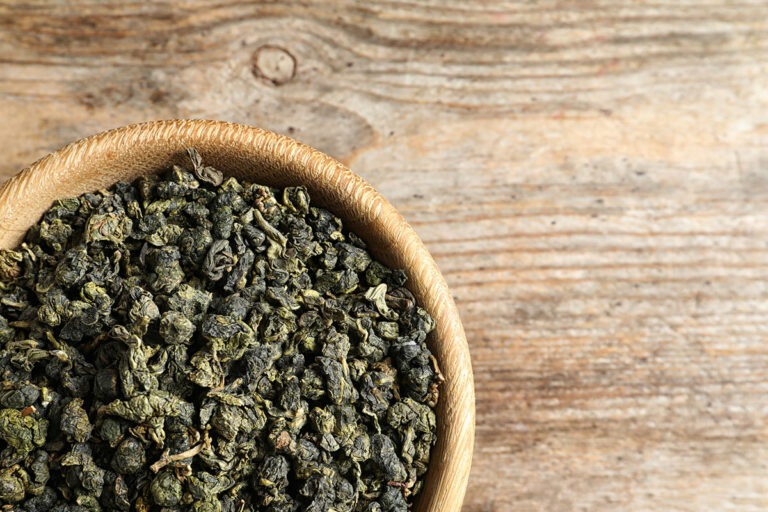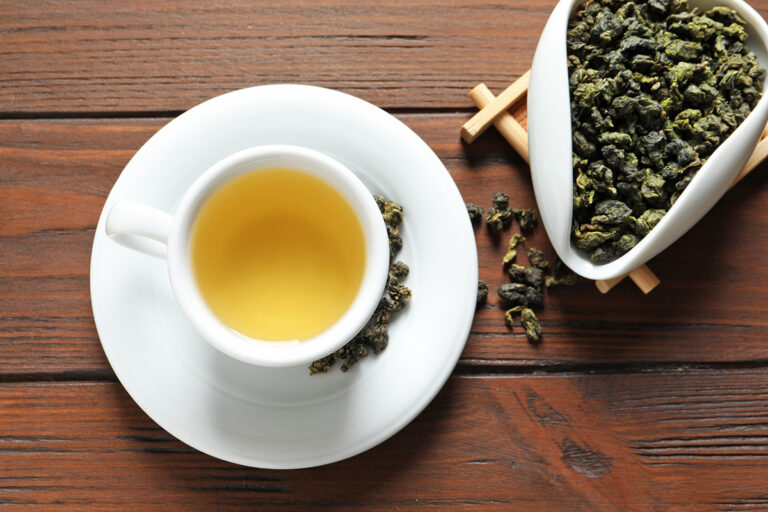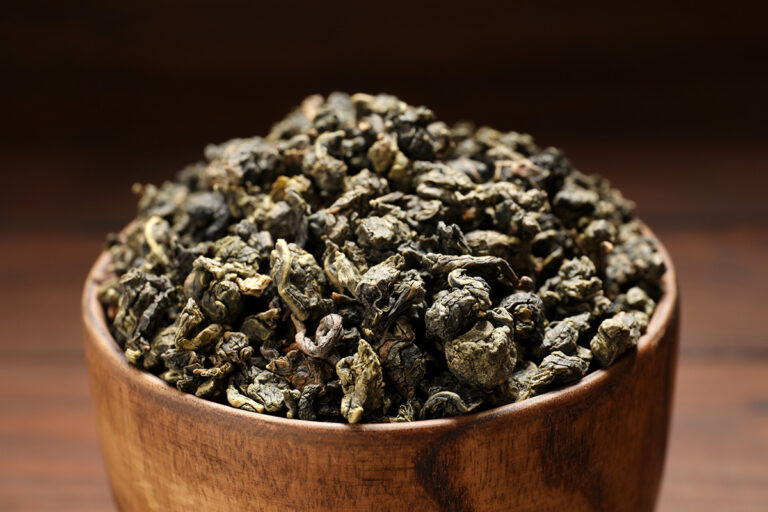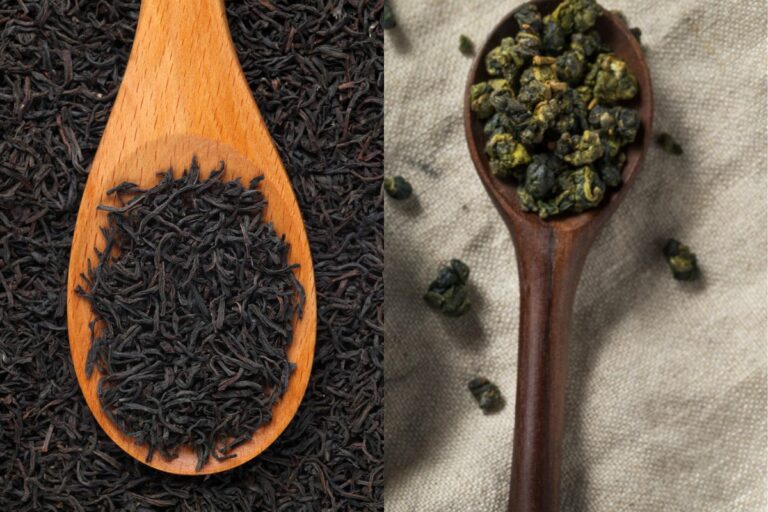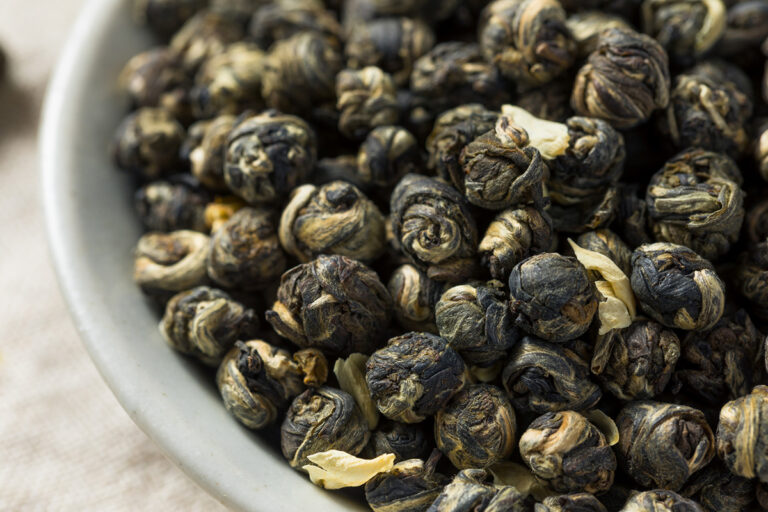Does Oolong Tea Stain Teeth?
Do you love drinking oolong tea but worry about its effects on your teeth? You’re not alone.
While all types of tea can potentially stain teeth, oolong tea is less likely to do so than black tea. This is because oolong tea is partially fermented, which reduces its tannin content – the substance that causes staining.
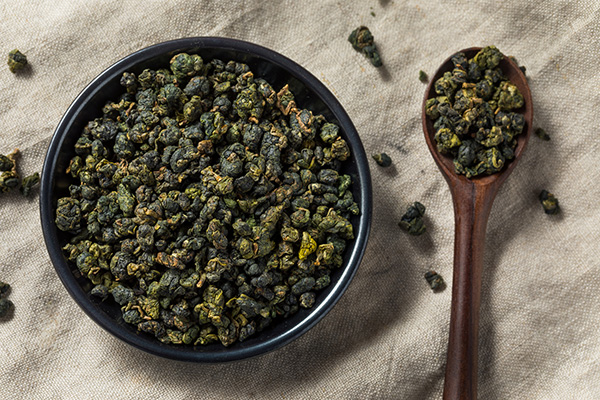
Why Does Oolong Tea Stain Teeth?
The are three main factors that contribute to a tea’s ability to stain teeth:
- Tannins: Many plants, including tea, contain natural compounds known as tannins. The binding of tannins to proteins in teeth can cause the discoloration of these proteins over time.
- Acidity: Tea is often acidic, eroding tooth enamel and making the teeth more vulnerable to staining. When tooth enamel is compromised, it exposes the dentin layer beneath it, which is naturally yellowish and can contribute to a darker appearance of the teeth.
- Pigments: Some teas contain pigments that can stain teeth. Darker-hued herbal blends such as hibiscus and traditional black tea include high pigment concentrations that are notorious for causing discoloration.
What Tea Stains Teeth More? Black, Green, and Herbal Teas Compared
Though all types of tea can lead to tooth discoloration over time, some are more prone to causing it than others. Here’s how oolong tea compares to black, green, and herbal teas in their staining potential.
Black Tea
Of the two teas, black tea generally has a higher staining potential than oolong tea. Black tea contains more tannins and pigments that can discolor teeth.
According to studies, tannin levels in black tea are higher at approximately 13.36%, whereas oolong tea typically contains about 8.66% tannins.
Green Tea
Regarding staining potential, oolong tea may have a higher likelihood of causing tooth discoloration than green tea. As per a study, the tannin content in Oolong tea is significantly higher (8.66%) than in green tea (2.65%).
Pu-Erh Tea
Pu-erh tea can leave more stains than oolong tea due to its intense color and high concentration of tannins. Pu-erh tea, a fermented tea, has been found to possess even higher levels of tannins than black tea.
Herbal Teas
Generally speaking, herbal teas have a lower capacity for staining than traditional teas like oolong. This is because numerous herbal teas contain fewer tannins or none at all. Nonetheless, certain herbal teas, like hibiscus, can stain more easily because of their dark hue.
What Are the Health Benefits of Oolong Tea?
Oolong tea has been associated with several health benefits:
- Boosts metabolism: Oolong tea may help increase metabolism and promote weight loss due to its caffeine and catechin content.
- Reduces risk of chronic diseases: Consuming oolong tea with its rich antioxidant content may lower one’s risk of developing chronic ailments like diabetes.
- Promotes bone health: Oolong tea contains essential minerals for bone health, like calcium and magnesium.
- Improves brain function: The caffeine in oolong tea can improve mental alertness and cognitive performance.
- Lowers stress levels: Oolong tea contains an amino acid called theanine which has been shown to promote relaxation and reduce stress levels.
Best Oolong Teas to Explore
If you’re not deterred by the possibility of oolong tea staining your teeth, here are the best oolong teas for you to explore.
Conclusion
Oolong is a great alternative to other teas. Its numerous advantages are boosted metabolism, reduced risk of chronic illnesses, better bone health, improved brain function, and lowered stress levels.
In addition, although all tea varieties can cause tooth discoloration with prolonged use, oolong tea may have less staining potential than black tea because of its lower tannin levels.
For this reason, it might be preferable if you’re concerned about maintaining white teeth but still want to reap the rewards of drinking oolong.

